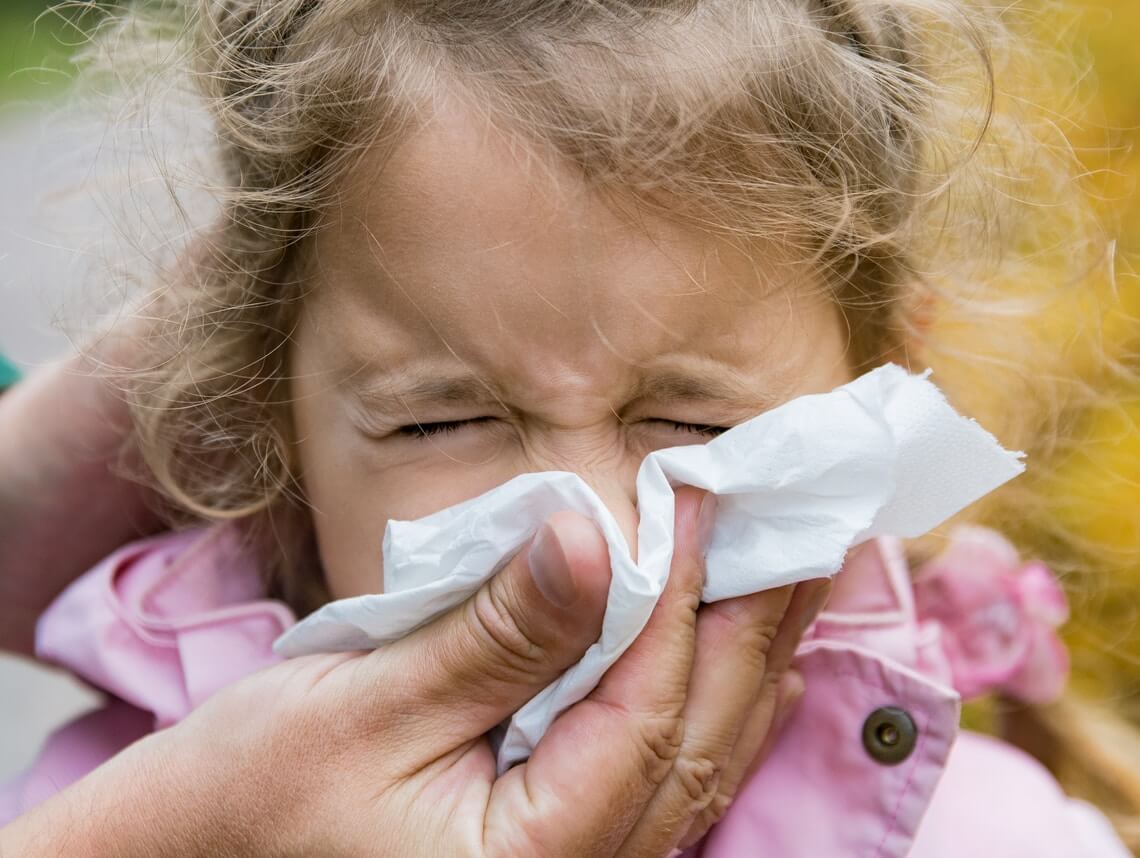
As the parent or caregiver of a child, you want to make sure your little one is always as healthy and comfortable as possible. Even something relatively minor — such as seasonal allergies — can be disruptive of their everyday routine. But, when, exactly, are seasonal allergies most likely to affect a child? What are the symptoms? And how can you best treat them?
What are seasonal allergies?
Seasonal allergies — also known as allergic rhinitis and hay fever — occur when the child’s immune system overreacts to an allergen. Although typically these include pollen and weeds around spring and summer, it’s also possible to experience them year-round due to indoor allergens — such as pet dander, dust mites, cockroaches, and mold.
Symptoms of Seasonal Allergies in Children
The symptoms of seasonal allergies are very similar to those of the common cold. The most common ones include:
- Itchy eyes
- Runny nose
- Sneezing
- Nasal congestion
- Fatigue
- Coughing
In some children, these symptoms may start out mild, but worsen due to prolonged exposure to what’s triggering them. However, since the discomfort can be so similar to the common cold, it’s important to keep in mind that if your child is suffering from seasonal allergies, the symptoms will show up immediately after exposure to the allergens and will last for as long as they’re exposed to such allergens. This is in contrast with a cold, which causes symptoms up to three days after exposure to the cold virus and tend to disappear within a week.
How to Help a Child with Seasonal Allergies
1. Stay Indoors
If your child gets seasonal allergies due to pollen or ragweed, keep them indoors as much as possible during the spring and summer — and keep windows closed. Since having them play inside 100% of the time is not always realistic, schedule their time outdoors in the early afternoons, since pollen is usually at its peak in the mornings and evenings. Also, stay indoors on windy days.
2. Change Their Clothes When They Get Home
Pollen and ragweed can leave traces on your clothes even during short outings. Have your kids take a bath and change into a clean set of clothes as soon as they walk through the door — and have everyone in your family do the same. In addition, have everyone leave their shoes by the front door to avoid bringing in a trail of pollen.
3. Keep Them Hydrated
Histamines are chemicals in the immune system that cause people to get teary-eyed and sneeze in efforts to get allergens out of the body. While this is good to fight off allergies, too many of them can increase your child’s discomfort. Dehydration causes your child’s body to produce higher histamine levels, so keep flavored water, teas, and fruit close by to ensure they stay hydrated all day. Also, drinking enough fluids will thin out the mucus in your child’s nasal passages.
4. Keep Your Home Clean
If your child’s allergies are caused by indoor pollutants, schedule regular home cleanings — and switch to natural cleaners such as baking soda and/or distilled white vinegar — to prevent aggravating symptoms due to irritating chemicals. Make sure to vacuum carpets more often, and install a HEPA air filter in your air conditioner.
5. Steam Therapy
Help your child clear a stuffy nose with steam therapy. This can be done either by having them hold their head over the bathroom sink full of hot water, while placing a towel over their head to help trap in the steam. If your child is too fussy to stand like that for a while, sit with them in the bathroom for about 15 minutes, with the shower running hot water, and the bathroom door closed.
Contact Care Options for Kids for Home Health Care in Florida
It can be hard to balance your time between work, home, and caring for a child. That’s why our team of skilled professionals at Care Options for Kids is here to help.
Our home health care services offer support in the comfort of your home. We refer loving and competent nurses to provide customized care for families — from a few hours a day to around-the-clock supervision. Contact us directly to speak with a home health care professional or request a free in-home assessment. Together we can determine the best plan of action to keep your loved ones happy and healthy.
If you or a loved one are considering pediatric home health care services in Florida, contact the caring staff at Care Options for Kids. Call today at (888) 592-5855.
